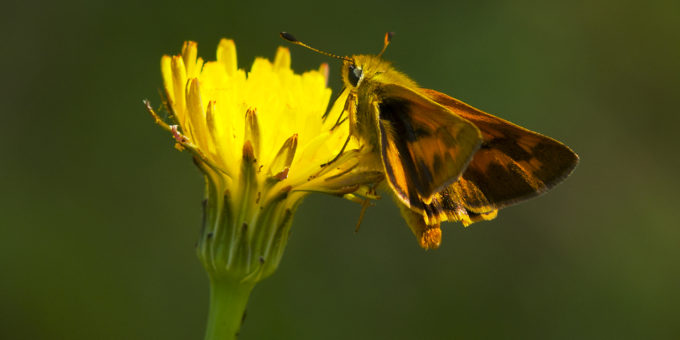Tag: pollinators
Why you Should Keep Some Dandelions in the Yard
Dandelions are the bane of the lawn enthusiasts existence. The beautiful green suburban pastures ruined with these hard to get rid of weeds. But are they really so bad? Or are they even good to have around? Here are a just few reasons why they are actually a good thing for your Garden and the critters that live in it.
Good for the Pollinators
During the early spring many of the pollinators favourite plants are still just getting started for the year. Dandelions however have usually made an appearance and provide much needed food and energy for emerging beneficial insects. One common and important one are Bumble Bee Queens who are out in often cool mornings looking to establish a nest. Dandelions can literally be the difference for the struggling Queens survival.
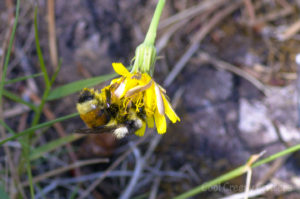
Helping Garden Predators
Wasps might not be as kindly looked on by people as bees are. They are more fearsome looking than a fuzzy Bumblebee and lets face it, they are a bit pushy when you are enjoying a meal outside, especially the Yellowjacket varsity. But these insects are immensely important for a healthy garden as they are top predators keeping insects who harm plants under control. While adult wasps feed primarily on carbohydrates, they do prey on other insects to feed their growing young. For many wasp, just as bees, Dandelions are an important food source when other sources are not available.
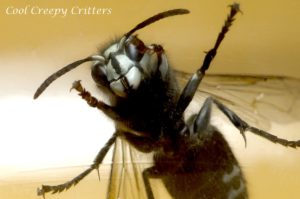
They are Actually Nice to Look At
We are mostly taught to hate weeds, but this has always perplexed me. The flowering Dandelions look very striking and can be a great addition to your garden. On top of that they do not require any maintenance, watering, or fertilizer. They are drought resistant, hardy and can grow almost anywhere. I am not suggesting turning your lawn into a sea of Dandelions but just consider if you need to remove them everywhere. There are many places in the yard where they make great bright yellow additions to the yard and many beneficial critters that will appreciate it.
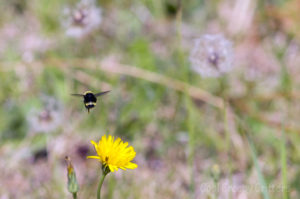
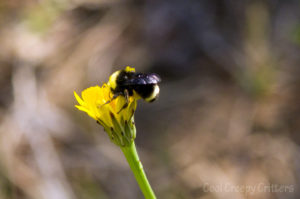
There are many reasons to like Dandelions and these are just a few. These plants are certainly helpful to people and much healthier to your yard than you might think. The Bee has come a long way in peoples appreciation. Maybe some of the less liked insects and plants will make there way there too.
Just a Honeybee on a Daisy in Summer- Bees in the Garden
Most of the bees seem attracted to the lavender right now but this one spent considerable time enjoying some solitude on this flower.
Having a wide variety of plants for bees to accesses during the season is important in helping all the Honeybee, Bumblebee species as well as other pollinators. Having a diverse garden has the added benefit of becoming a lively living ecosystem that can be fascinating to watch. One thing to consider when planting to encourage bees is thinking about staggering different plants that bloom at different times. For example, I often leave some dandelions out in early spring when some pollinators are first emerging. Often it is one of the only sources of food for these early garden guests and leaving them something to accesses can be beneficial. Dandelions have a very nice flower and once someones idea of them as just a weed is overcome, a nice early addition to the garden.
Some other plants that seem very popular in my garden on Vancouver Island are:
- Common lilacs (which are also early to bloom)
- lavender,
- Globe Thistle,
- California lilacs
- Daisies
to name just a few.
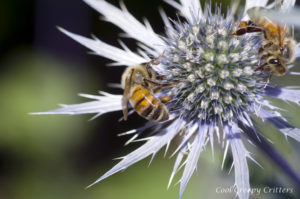
It has been interesting and encouraging to see views on bees change over the years. As a kid I would often remember people killing bees as pests out of fear of being stung. At that same time I remember observing bumblebees in the garden and being fascinated at how gentle they were. I hope peoples appreciation for other insects and arachnids also develops over time. So many of these tiny creatures benefit us as a species as well as being fascinating subjects to observe.
Saving an Exhausted Bumblebee – Macro of a Bee Feeding
I found this bumble bee exhausted and having a hard time moving, however after offering her some sugar water the bee happily lapped it up and began looking more energetic. It then decided to climb aboard my phone which was sitting a few feet away and rest for a while longer. Finally, after what appears to be a good bee poop on my phone to thank me it flew away apparently rejuvenated.
Something to note that I found in my research for helping exhausted bees such as this one is that it is important to use a mix of sugar and water and NOT honey like you would find in your kitchen. That honey is imported and apparently not healthy for them to consume.

